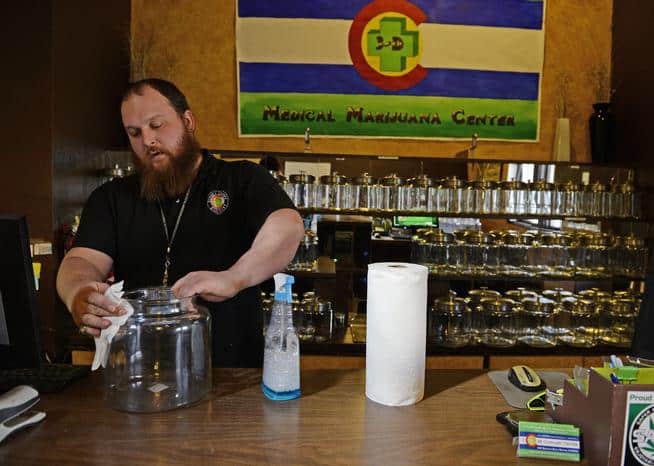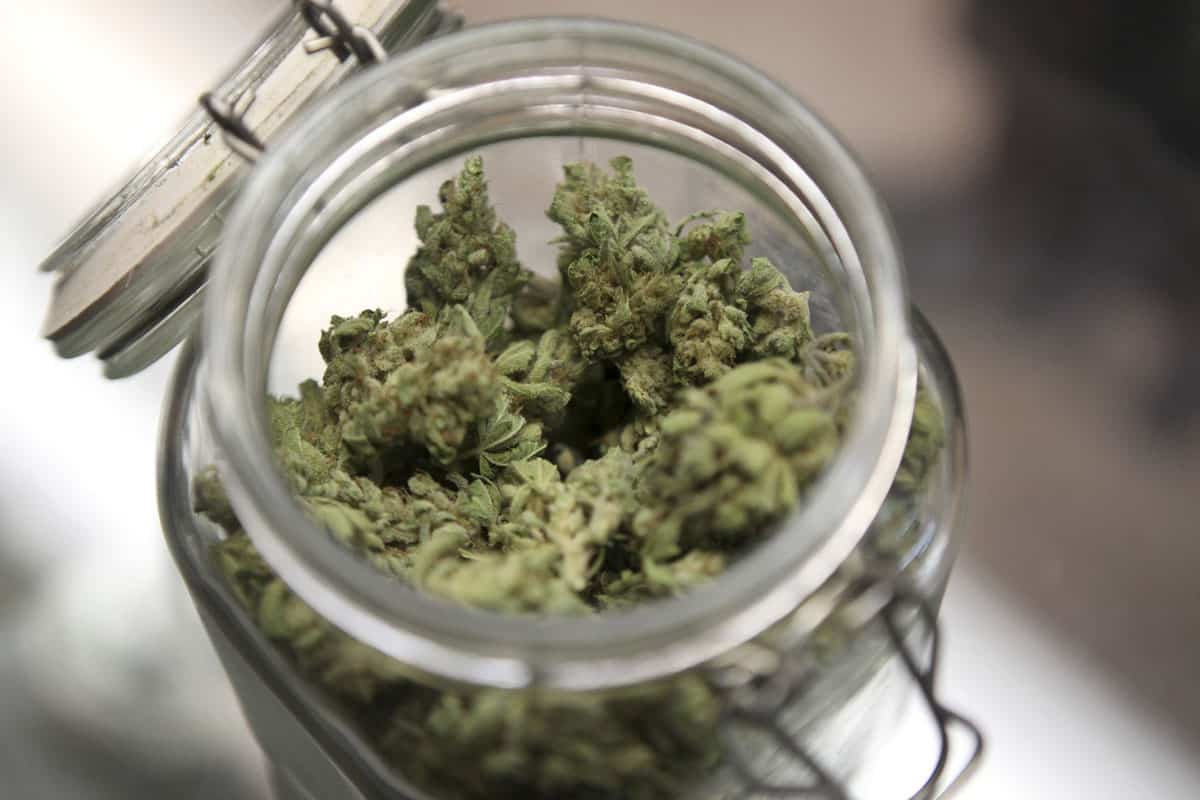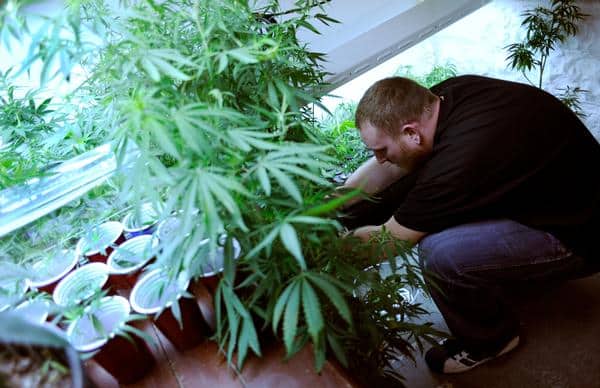What’s the word on Colorado’s green rush? It’s this: If you’re a resident of the state, you can finally get in on it.
Starting Tuesday, any Colorado resident can apply for a retail marijuana business license.

This announcement marks a significant shift in the state’s groundbreaking recreational laws which first went into effect exactly six months ago. On that day, January 1st, only owners of medical marijuana businesses who were in “good standing” with the state were allowed to apply for retail marijuana licenses. But now, any adult who has established residency in the state can apply for a marijuana business license.
Stated Mason Tvert, communications director at the Marijuana Policy Project and a key backer of Amendment 64 (the amendment that legalized marijuana for adult use in Colorado in 2012), “This is an obvious next step in the development of this legal industry.” He told Huffington Post, “New craft breweries and distilleries are frequently being established here in Colorado, and this really is no different. Existing marijuana businesses are demonstrating commitment to following the laws and making this system work, and we expect new businesses to do the same. Colorado has demonstrated that regulating marijuana works.”
As of mid-June, reported by The Denver Post’s John Ingold, nearly 300 people had filed notices that intend to apply for a retail marijuana license. In the present, it remains unclear how many of the applicants intend to start cultivation companies, how many are interested in opening up storefronts, and how many want to explore other aspects of the retail marijuana industry.
The spokeswoman for the Colorado Department of Revenue’s Marijuana Enforcement Division, Natriece Bryant, told HuffPost that a handful of applicants, including one for a retail marijuana cultivation business and two for retail marijuana testing facilities, have already moved onto the next stage of the approval process.

Before you decide to move this day to the state of the sun in hopes of making it as a marijuana millionaire, keep in mind that many of Colorado’s cities and counties still have either outright bans on retail marijuana shops or moratoriums on new shops opening. Colorado Springs, the State’s second-largest city by population, is among cities with blanket bans, while Denver, which is home to the majority of the state’s operative retail marijuana dispensaries, has a moratorium on a new pot business until 2016.
However, there are certain cities and counties that have opposed medical marijuana in the past and are now signaling their interest in the cannabis shops. For example, the city of Aurora, which banned medical marijuana dispensaries in 2010, decided to opt in on recreational marijuana shops and is now accepting business applications, though it has capped the number of shops at 24.
Told Aurora’s finance director, Jason Batchelor, to Denver Fox’s Affiliate in March, “We have the advantage of waiting and seeing how other cities have handled both retail and medical.”
What effect Tuesday’s policy change will have on the state’s existing marijuana industry remains to be seen.
“I’m a little nervous and concerned about the changes that are coming,”Toni Fox, owner of 3D Cannabis Center in Denver admitted his concern to HuffPost. “Not from a retail storefront side of the business, but from the large stand-alone cultivators that are now allowed to apply for licensing to grow come October 1st. Most of us retail shop owners are producing enough cannabis that we do not need to wholesale any product. Where is all this new unassigned retail cannabis going to go?”

Fox continued, “It’s very concerning to not only myself but others who see the writing on the walls. I think the wholesale and retail prices will come down considerably at most stores and there will still be an extremely excessive amount of harvested cannabis available and unneeded. Where will it go?”
Just between January 1st and April 30th of this year, the state’s medical and recreational marijuana dispensaries have pulled in over $200 million in revenue (according to state tax data). Interestingly, despite the novelty and popularity recreational marijuana has in the state, it’s medical marijuana that continues to vastly outsell recreational. As of April 2014, medical marijuana shops had brought in more than $130 million in revenue, versus $70 million for recreational. This could likely be due to several factors: the contrast between the state’s long-established medical marijuana industry and its still-nascent recreational recreational marijuana industry, plus the varying rates at which medical and recreational marijuana are taxed.
The difference could be seen as big. While medical marijuana is subject to state and local jurisdictional taxes, recreational marijuana has an additional 15 percent exise tax – the revenue which will fund public school construction. There is an additional 10 percent special sales tax on retail sales to fund marijuana regulation in the state.
All in all, if approved, new businesses will be able to open around the state on October 1, 2014.


